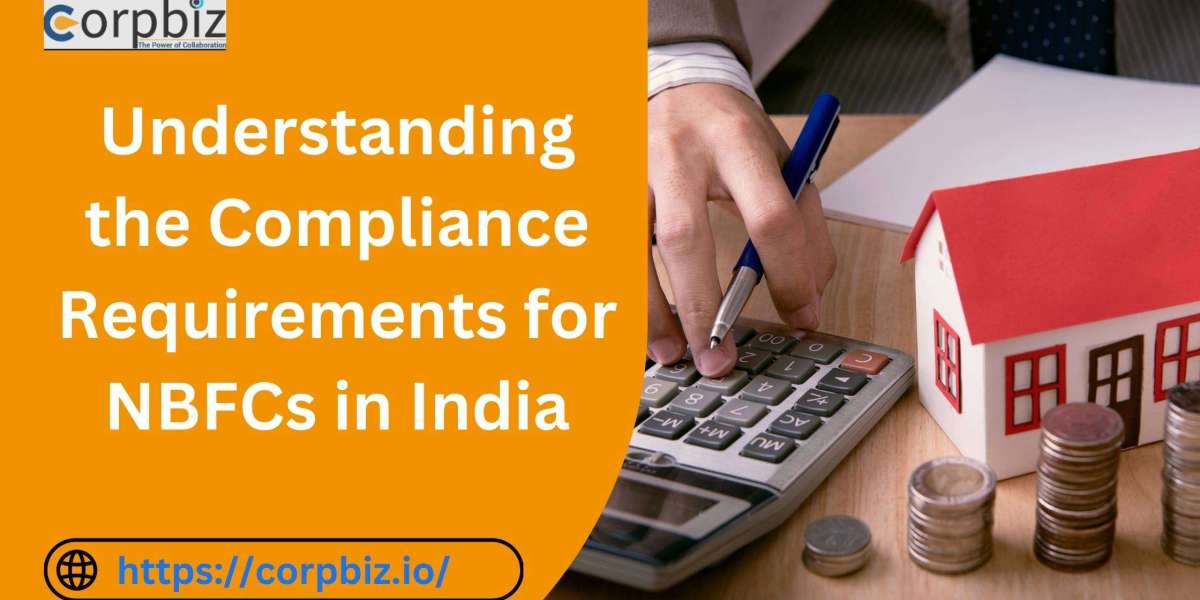In India’s rapidly growing financial ecosystem, Non-Banking Financial Companies (NBFCs) play a vital role. From providing credit to small businesses and individuals to supporting financial inclusion, NBFCs are essential. However, with this responsibility comes a set of regulatory and compliance requirements laid down by the Reserve Bank of India (RBI).
Whether you're planning for Online NBFC Registration, applying for a P2P lending license online, or exploring the NBFC takeover procedure in India, understanding the compliance framework is crucial. In this blog, we break down the key compliance needs in simple terms and explain how Corpbiz can help navigate this journey with ease.
What is an NBFC?
An NBFC (Non-Banking Financial Company) is a company registered under the Companies Act, 2013, that provides banking services without holding a banking license. NBFCs offer loans, asset financing, wealth management, microfinance, peer-to-peer lending, and more.
They are regulated by the Reserve Bank of India (RBI) and must follow specific compliance rules to maintain their registration and operate legally.
Key Types of NBFCs in India
NBFCs can be classified based on their activities:
NBFC-Investment and Credit Company (NBFC-ICC)
NBFC-Micro Finance Institution (NBFC-MFI)
NBFC-Factor
NBFC-Account Aggregator (NBFC-AA)
NBFC-P2P Lending Platform
Each type has unique compliance requirements depending on its functions.
Basic Compliance Requirements for NBFCs
Here are some of the major compliance tasks every NBFC must follow:
1. Registration with RBI
All NBFCs must register with the RBI under Section 45-IA of the RBI Act, 1934. The initial steps include:
Incorporation under the Companies Act
Minimum net owned fund (NOF) of ₹2 crore
Clean credit history of directors
For businesses seeking Online NBFC Registration, platforms like Corpbiz offer expert-led support to simplify and fast-track the process.
2. Submission of Returns
NBFCs must file various returns on a periodic basis to RBI:
NBS-1: Quarterly return on assets and liabilities
NBS-9: Annual return for non-deposit-taking NBFCs
Statutory Auditor Certificate: Annually to confirm compliance with NOF requirements
CRILC Reporting: For large exposures
3. KYC and AML Guidelines
NBFCs are required to follow Know Your Customer (KYC) and Anti-Money Laundering (AML) norms:
Maintain updated customer data
Monitor suspicious transactions
File Suspicious Transaction Reports (STRs)
Failure to comply can lead to hefty penalties or cancellation of license.
4. Fair Practices Code
RBI has directed all NBFCs to adopt a Fair Practices Code. This code ensures transparency in dealing with customers. Key points include:
Clear disclosure of interest rates and charges
Grievance redressal mechanism
Non-coercive recovery methods
Compliance for Specialized NBFC Licenses
✅ NBFC Account Aggregator License Online
NBFC-AAs collect and share financial information with user consent. To comply, they must:
Get licensed by RBI
Implement strict data protection protocols
Ensure customer consent before sharing data
Corpbiz helps with the entire NBFC account aggregator license online application and compliance process.
✅ P2P Lending License Online
P2P platforms connect borrowers and lenders. RBI compliance includes:
Capital requirement of ₹2 crore
No direct lending by the platform
Limit exposure to ₹50 lakh per lender
You can apply for a P2P lending license online with expert assistance from Corpbiz to ensure smooth compliance and setup.
✅ NBFC Takeover Procedure in India
In case of ownership transfer, an NBFC must:
Obtain prior RBI approval
Draft a Share Purchase Agreement (SPA)
Notify RBI post-takeover
Complete due diligence
The NBFC takeover procedure in India is complex, but Corpbiz offers complete support from due diligence to documentation.
✅ PPI License Apply Online
NBFCs can also apply for a Prepaid Payment Instrument (PPI) license for issuing wallets, cards, etc.
Requirements include:
Minimum positive net worth of ₹15 crore
Strong cyber-security framework
KYC verification process
You can apply for a PPI license online with guidance from Corpbiz to avoid compliance pitfalls.
RBI’s Scale-Based Regulation (SBR) Framework
As of 2022, RBI introduced a Scale-Based Regulation framework. It classifies NBFCs into four layers:
Base Layer (BL)
Middle Layer (ML)
Upper Layer (UL)
Top Layer (TL) – currently empty but reserved for big NBFCs with potential systemic risk.
Each layer has specific compliance intensity, making it critical to identify where your NBFC fits.
Consequences of Non-Compliance
Not following RBI norms can lead to:
Penalties and fines
License suspension or cancellation
Loss of reputation
Legal actions
How Corpbiz Helps
Corpbiz is a trusted legal and compliance expert in India. From Online NBFC Registration to NBFC Takeover, we offer:
End-to-end legal support
Expert consultation
Timely filing and documentation
Transparent and affordable pricing
With Corpbiz by your side, compliance becomes a breeze.
Conclusion
Running an NBFC in India requires more than just business acumen—it needs regulatory awareness and timely compliance. Whether you're looking to apply for a P2P lending license online, get an NBFC account aggregator license, or explore the NBFC takeover procedure in India, staying compliant is key to long-term success.
Partnering with experts like Corpbiz ensures that your NBFC meets all the necessary requirements without any legal hassle.







